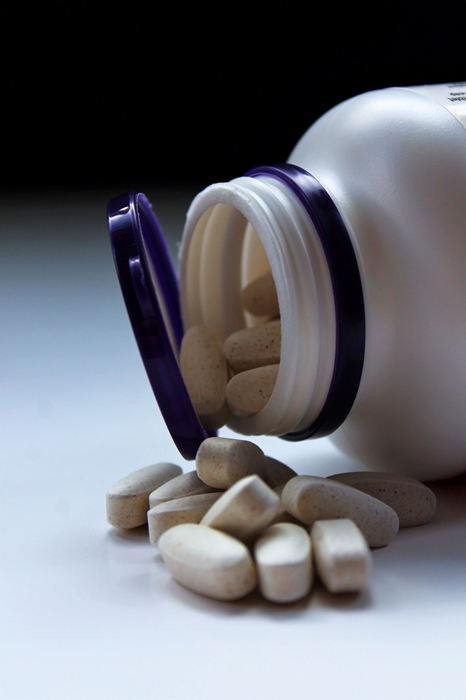Federal Court dismisses judicial review of PMPRB's excessive pricing decision

Alexion Pharmaceuticals Inc. (“Alexion”) developed, manufactures and markets the drug Soliris, a drug utilized to treat two rare, life-threatening blood disorders. Soliris is one of the most expensive medicines in Canada.
In September 2017, the Patented Medicines Prices Review Board (the “Panel”) found that the price of Soliris was “excessive” pursuant to sections 83 and 85 of the Patent Act (the “Act”), on the basis that that the price of Soliris in Canada exceeded the lowest price in seven comparator countries. Alexion was ordered to lower the price of the drug and to make a payment to the federal government to offset its past excessive revenues from sales of Soliris in Canada.
Alexion sought judicial review of the Panel’s decision and identified the following issues:
- Was the Panel’s adoption of the Lowest International Price Comparison (“LIPC”) test inconsistent with the Act and therefore unreasonable?
- Was the Panel’s refusal to give weight to CPI changes unreasonable?
- Was the Panel’s refusal to consider provincial rebates unreasonable?
- Was it unreasonable for the Panel to order past “excessive revenues” to be forfeited based on the HIPC test after conceding there was insufficient evidence on which to establish liability based on that test?
The Decision Under Review
The Panel was tasked with determining two issues:
- Is or was the price of Soliris excessive pursuant to sections 83 and 85 of the Act?; and
- If so, what order should be made?
The Panel found that the LIPC test was the correct benchmark for determining whether the price of Soliris was excessive, despite not being contained in the Compendium of Policies, Guidelines and Procedures (the “Guidelines”). Further, the Panel found that it must consider its consumer protection mandate identified in Celgene Corporation v Canada (Attorney General), 2011 SCC 1, namely that “all Canadians are able to obtain patented medicines at ‘reasonable prices’ and that prices of patented medicines do not rise to ‘unacceptable levels’”.
The Panel noted that it was necessary to deviate from the Guidelines as they did not result in a reasonable implementation of the factors identified in subsection 85(1) of the Act. Subsection 85(1) of the Act outlines factors that the Panel must take into consideration when determining whether a medicine is being or has been sold at an excessive price.
The Panel considered the information filed by Alexion with respect to subsection 85(1)(a) (i.e., the price at which Soliris had been sold in Canada). For subsection 85(1)(c), the Panel considered the ex-factory price of Soliris in comparator countries. With respect to subsection 85(1)(d), the Panel held that it was required to consider changes in the Consumer Price Index (“CPI”), but that a price increase based on the CPI could not exceed the LIPC test. The Panel found that the factors identified in subsections 85(1)(b) and (e) of the Act were not applicable.
Ultimately, the Panel held that the price of Soliris in Canada had been excessive since its introduction.
Since the Panel found that the price of Soliris in Canada was excessive, it considered subsection 83(2) of the Act. Subsection 83(2) provides that the Panel may order the patentee to offset the excess revenues derived from the sale of the medicine at an excessive price.
In addressing these excess revenues, the Panel found that it had the discretion to calculate the excess revenues pursuant to subsection 83(2) on a different basis than the price of Soliris going forward pursuant to subsection 83(1). The Panel ordered Alexion to reduce the price of Soliris to no higher than the price in the lowest priced comparator country. However, it ordered Alexion to pay for past excess revenues based on the highest international price comparator (“HIPC”) test.
Analysis of the Federal Court: Alexion Pharmaceuticals Inc. v Canada (Attorney General), 2019 FC 734
Was the Panel’s adoption of the LIPC test inconsistent with the Act and therefore unreasonable?
The Federal Court (the “Court”) found that the Panel’s use of the LIPC test to determine whether a price of a patented medicine is excessive pursuant to section 83 of the Act was consistent with the purpose of the Act.
The Court found that the Panel was reasonable in noting that, because the Act does not define what constitutes an “excessive” price, Parliament had contemplated the application of different tests and approaches for different patented medicines. In other words, there is no single correct test such that the Panel is not required to apply any defined test under section 83 of the Act. Accordingly, the Panel’s use of the LIPC test was consistent with the broad discretion provided to the Board pursuant to section 83 of the Act.
Was the Panel’s refusal to give weight to CPI changes unreasonable?
Paragraph 85(1)(d) of the Act requires a panel to consider changes in the CPI. Alexion submitted that the Panel did not consider CPI changes in its consideration of the LIPC test. The Court, however, was satisfied that the Panel’s engagement with expert evidence, and its conclusion that the evidence was deficient and unhelpful, was reasonable and constituted a serious analysis of paragraph 85(1)(d).
Was the Panel’s refusal to consider provincial rebates unreasonable?
Alexion submitted that the Panel, in finding the price of Soliris excessive and ordering remedial payments from Alexion, unreasonably failed to consider payments made by Alexion to the provinces under province listing agreements.
Relying on Leo Pharma Inc v Canada (Attorney General) (“Leo Pharma”), 2007 FC 306, Alexion argued that it was not open to the Panel to consider Alexion’s intent in providing these payments to the provinces. The Court, however, found that it was open to the Panel to interpret Pfizer Canada Inc v Canada (Attorney General), 2009 FC 719 as restricting the holding in Leo Pharma as applying only to payments given to customers, and not to third parties to the sales transaction. On this basis, the Court found it reasonable for the Panel to conclude that discount payments to provinces were not to be taken into account in determining average transaction prices pursuant to a subsection 83(1) analysis.
Did the Panel unreasonably adopt the HIPC test in making the excess revenue order?
The Court found that subsection 83(2) provides significant discretion to a panel when making an excess revenue order. However, subsection 83(2) is not intended to impose a penalty or sanction. As a result, a panel is not permitted to issue an order in any amount and must take account of the estimated amount of excess revenues.
The Court noted that the Panel, in determining the quantum of excess revenues, was permitted to adopt a more conservative test than it might otherwise be entitled to pursue. The Court found that this is what the Panel had done with the application of the HIPC test to Alexion’s excessive pricing order.
Conclusion of the Federal Court
The Federal Court found the Panel’s decision reasonable in all respects, and the application was dismissed.
Authors: Andrew Brodkin, Jordan Scopa, Jaclyn Tilak and Nargis Fazli
Authors
Expertise
Insights
-
Intellectual Property Litigation
CIPO Explores Fast-Tracking Patents for Innovation in Priority Sectors
Industry Minister Mélanie Joly is reportedly evaluating a proposal from the Canadian Intellectual Property Office (“CIPO”) that would accelerate patent applications in artificial intelligence… -
Intellectual Property Litigation
Rock History and Copyright: The Show Goes On
Veteran rock photographer, Neil Zlozower, reportedly sued the Rock & Roll Hall of Fame for allegedly using his copyrighted images of Eddie Van Halen in its museum exhibits without his permission… -
Intellectual Property Litigation
Patent Reinstatement Throws “Glory” Cherries in the Pits
The U.S. District Court for the Eastern District of Washington (“District Court”) reportedly reinstated the Canadian government’s patent for the “Staccato” cherry, developed by Agriculture and… -
Intellectual Property Litigation
Sportswear Brand Sues University Over Similarities in Merchandise
As reported by the Associated Press, Columbia Sportswear has sued Columbia University, claiming that the university infringed the sportswear company’s trademark and breached an agreement between the… -
Intellectual Property Litigation
Call Dropped: Verizon Cuts Deal in $175M Patent Clash
Verizon and Headwater Research LLC have reportedly agreed to settle a patent infringement lawsuit that ended with a $175 million USD jury verdict against the telecom giant. Headwater, a… -
Intellectual Property Litigation
Nintendo Secures Copyright Victory in China
In a recent copyright infringement case, the Jiangsu High Court ruled in favor of Nintendo, awarding the company approximately $28,000 USD, or 200,000 RMB, and an injunction against an unnamed…



